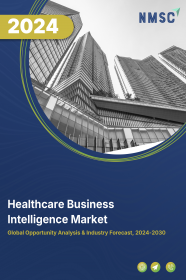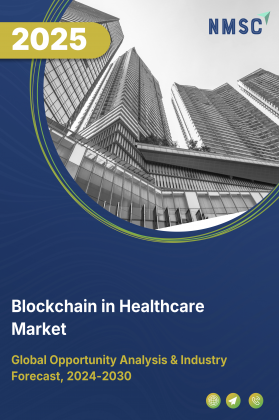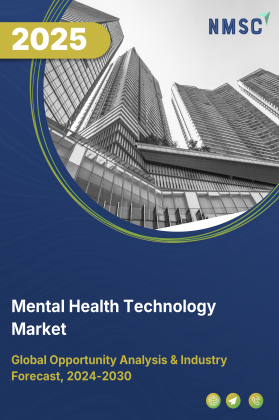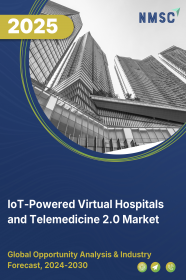
Healthcare Business Intelligence Market by Component (Software, Services, Platforms), by Function (Online Analytical Processing OLAP and Visualization, Query and Reporting, Performance Management), by Deployment Model (On premise Model, Cloud based Model, Hybrid Model) by Application (Financial Analysis, Operational Analysis, Clinical Analysis), and by End User (Healthcare Manufacturers, Healthcare Providers, and Others) – Global Opportunity Analysis and Industry Forecast, 2024–2030
Market Definition
The global Healthcare Business Intelligence Market size was valued at USD 9.00 billion in 2023, and is predicted to reach USD 23.17 billion by 2030, with a CAGR of 14.47% from 2024 to 2030. Healthcare Business Intelligence refers to the use of data analysis tools and methodologies in the healthcare industry to gain valuable insights, make informed decisions, and optimize operations. It involves collecting, processing, and analyzing healthcare-related data to improve patient care, streamline processes, enhance financial management, and drive strategic planning.
The benefits of healthcare BI include better clinical outcomes, cost reduction, increased revenue, improved patient satisfaction, and enhanced resource allocation. It also supports efficient supply chain management by providing insights into inventory levels, demand forecasting, and supplier performance, helping healthcare organizations optimize their supply chain operations for better patient care and cost management.
Market Dynamics and Trends
The healthcare business intelligence is experiencing a surge in growth due to the widespread adoption of Electronic Health Records (EHRs) across healthcare facilities. The accumulation of vast amounts of data from these EHR systems necessitates the utilization of business intelligence (BI) tools to extract valuable insights, enhance patient care, and optimize operational efficiency.
According to the Office of the National for the Health Insurance Technology (ONC) as of January 2023, over 6 of every 10 hospitals adopted electronic health information sharing and the integration of care records into electronic health records. This represents a significant 51% growth from 2017 to 2021. This significant increase in hospitals adopting electronic health information sharing and integrating records into EHRs is significantly boosting the market growth.
Also, the widespread adoption of telemedicine and remote monitoring in healthcare is fueling the expansion of the healthcare business intelligence market. The increased use of these technologies generates a significant amount of patient data.
As a result, there is a growing need for healthcare business intelligence tools, which are essential for analyzing and improving patient health. Consequently, it contributes to the overall growth of the healthcare business intelligence market.
Additionally, the surge in chronic health conditions has elevated the need for sophisticated data analytics tools. These tools play a key role in comprehending and handling the complex data linked to chronic diseases, ultimately enhancing patient care and streamlining healthcare practices propelling the market growth.
However, the high installation cost of healthcare business intelligence systems makes it difficult for small and medium-sized healthcare organizations to afford, thus restraining the growth of the market.
On the contrary, the integration of big data analytics with blockchain technology is expected to create substantial growth opportunities for the healthcare BI market in the future. This combination ensures secure, transparent, and efficient management of vast healthcare datasets, safeguarding patient privacy and data integrity. As a result, this synergy fosters innovation, cost-efficiency, and improved patient outcomes, making it a promising avenue for the market’s expansion.
Market Segmentation and Scope of Study
The healthcare business intelligence market is segmented based on component, function, deployment model, application, end-user, and region. Based on the components, the market is divided into software, services, and platforms. Based on function, the market is classified into online analytical processing (OLAP) and visualization, query and reporting, and performance management.
Based on the deployment model, the market is segregated into the on-premise model, cloud-based model, and hybrid model. Based on the application, the market is classified into financial analysis, operational analysis, and clinical analysis.
Based on the end users, the market is bifurcated into healthcare manufacturers, healthcare providers, and others. Geographical breakdown and analysis of each of the aforesaid segments includes regions, such as North America, Europe, Asia-Pacific, and the Rest of the World (RoW).
Geographical Analysis
The North American region holds the dominant share of the healthcare business intelligence market at present and is expected to continue its dominance during the forecast period. This is due to the presence of prominent players such as BurstIQ and others that are adopting various strategies such as acquisitions, contributing to the market growth in the region.
For instance, in 2023, BurstIQ acquired Olive AI’s business intelligence solution, which reinforced its commitment to assisting healthcare organizations with data-driven solutions while adhering to strict privacy and compliance standards.
Additionally, the increasing government initiatives to enhance medical care facilities, particularly in the U.S., have fuelled the growth of healthcare business intelligence (BI) by promoting innovation and AI solutions in the healthcare sector. This has resulted in the expansion of the market as more healthcare organizations adopt BI tools for AI-driven data analysis and improved decision-making.
For instance, in February 2023, The General Services Administration (GSA) initiated the Applied AI Healthcare Challenge to find practical solutions that helped federal agencies improve medical care. This effort aims to advance healthcare services in the federal sector.
On the other hand, the Asia-Pacific is expected to show a steady rise which is fueled by the increasing adoption of digital solutions such as telemedicine in countries such as India and others of the region. With online consultations improving accessibility, especially in rural areas, telemedicine enhances the healthcare sector and also propels the growth of the healthcare business intelligence market.
According to the Asia Foundation as of June 2023, eSanjeevani a telemedicine platform launched by the Ministry of Health and Family Welfare in India designed to offer remote healthcare services by connecting patients with doctors through online platforms not only showcases India's leadership in digital healthcare but also emphasizes the transformative influence of digital solutions. Such digital platforms are actively contributing to the growth of the healthcare business intelligence market in the region.
Also, the incorporation of digital technology such as AI, big data analytics, and others in healthcare industries especially in countries such as India, China, and Japan is fuelling the expansion of the healthcare business intelligence market. This digital evolution eases administrative tasks, improves operational efficiency, and empowers more effective data management.
According to The World Bank as of August 2023, World Bank support in India, allowed more than 40% of Anganwadi workers to adopt digital technology, reducing administrative burdens and expanding their reach to provide nutrition services to a greater number of pregnant and lactating women from 2016 to 2019.
Such advancements underscore the critical role of technology in enhancing healthcare delivery and highlight the potential for further growth in the healthcare business intelligence market, as organizations seek innovative solutions to optimize operational efficiency and improve patient outcomes.
Competitive Landscape
Various market players operating in the healthcare business intelligence industry include SAPSE, Tableau Software, MicroStrategy Incorporated, IBM, Microsoft Corporation, QlikTech International AB, Information Builders, Microsoft, Oracle, Yellowfin BI, and others. These market players are engaging in product launches and others to remain dominant in the market.
For instance, in September 2023, MicroStrategy Inc. expanded its global partner program to drive growth and success in the AI and BI markets. This initiative holds the potential to foster the creation of advanced BI tools tailored specifically for healthcare, benefiting healthcare organizations and propelling the growth of the Healthcare BI market.
Additionally, in May 2023, QlikTech International AB acquired Talend, creating a powerful combination for businesses to harness data. This collaboration is especially beneficial in the healthcare sector as it improves data access, quality, and analytics, facilitating informed decisions and compliance. As a result, it is expected to drive expansion in the healthcare business intelligence market.
Key Benefits
-
The report provides quantitative analysis and estimations of the healthcare business intelligence market from 2024 to 2030, which assists in identifying the prevailing market opportunities.
-
The study comprises a deep-dive analysis of the current & future healthcare business intelligence market trends, depicting the prevalent investment pockets in the market.
-
Information related to key drivers, restraints, and opportunities and their impact on the healthcare business intelligence market is provided in the report.
-
A competitive analysis of the players, along with their market share is provided in the report.
-
SWOT analysis and Porter's Five Forces model are elaborated in the study.
-
Value chain analysis in the market study provides a clear picture of the roles of stakeholders.
Healthcare Business Intelligence Market Key Segments
By Component
-
Software
-
Services
-
Platforms
By Function
-
Online Analytical Processing OLAP and Visualization
-
Query and Reporting
-
Performance Management
By Deployment Model
-
On premise Model
-
Cloud based Model
-
Hybrid Model
By Application
-
Financial Analysis
-
Operational Analysis
-
Clinical Analysis
By End User
-
Healthcare Manufacturers
-
Healthcare Providers
-
Others
By Region
-
North America
-
The U.S.
-
Canada
-
Mexico
-
-
Europe
-
The U.K.
-
Germany
-
France
-
Italy
-
Spain
-
Denmark
-
Netherlands
-
Finland
-
Sweden
-
Norway
-
Russia
-
Rest of Europe
-
-
Asia-Pacific
-
China
-
Japan
-
India
-
South Korea
-
Australia
-
Indonesia
-
Singapore
-
Taiwan
-
Thailand
-
Rest of Asia-Pacific
-
-
Rest of the World (RoW)
-
Latin America
-
Middle East
-
Africa
-
REPORT SCOPE AND SEGMENTATION:
|
Parameters |
Details |
|
Market Size in 2023 |
USD 9.00 Billion |
|
Revenue Forecast in 2030 |
USD 23.17 Billion |
|
Growth Rate |
CAGR of 14.47% from 2024 to 2030 |
|
Analysis Period |
2023–2030 |
|
Base Year Considered |
2023 |
|
Forecast Period |
2024–2030 |
|
Market Size Estimation |
Billion (USD) |
|
Growth Factors |
|
|
Countries Covered |
28 |
|
Companies Profiled |
10 |
|
Market Share |
Available for 10 companies |
|
Customization Scope |
Free customization (equivalent to up to 80 working hours of analysts) after purchase. Addition or alteration to country, regional, and segment scope. |
|
Pricing and Purchase Options |
Avail customized purchase options to meet your exact research needs. |
KEY PLAYERS
-
SAPSE
-
Tableau Software
-
MicroStrategy Incorporated
-
Microsoft Corporation
-
QlikTech International AB
-
Information Builders
-
Microsoft
-
IBM
-
Oracle
-
Yellowfin BI




















 Speak to Our Analyst
Speak to Our Analyst

























